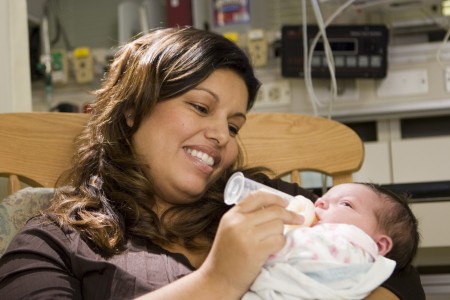CHOC Children’s has long relied on donated pasteurized breast milk to help provide the best nutrition to infants receiving care in its neonatal intensive care unit (NICU).
And starting this summer, CHOC is initiating a breast milk donation service that  will allow women to donate extra breast milk in the name of CHOC.
will allow women to donate extra breast milk in the name of CHOC.
Under the program, women pump milk at home, freeze it and send it to a third-party company, Prolacta Bioscience, for processing and safety testing. After pasteurizing and standardizing, Prolacta sends the finished product to CHOC.
Under the program, CHOC will be able to maintain an adequate supply of donor milk, regardless of the how many local women donate, says Dr. Christine Bixby, a CHOC neonatologist.
“CHOC was probably one of the earliest adopters of using donor milk in our preterm population,” she says. “The trend is to use donor milk and this is approaching a standard of care where if you do not have maternal milk, you use donor milk for the preterm babies.”
Dr. Bixby hopes that the new program will help encourage more women to donate milk, especially because they know their milk will help babies in their local community.
“There are a lot of people who don’t know what to do with their extra milk,” she says. “So, any moms who have too much milk can look into donating it, rather than throwing it out. These babies can really benefit from the donor milk and it’s a limited resource. This would be a great gift.”
Medical experts have found that donor human milk is an excellent alternative to a mother’s breast milk, and that premature babies tolerate donated human milk better than formula.
“The data is quite strong in the use of a human milk-based diet,” says Dr. Bixby. “There’s a lot about breast milk that is so much better than formula.”





